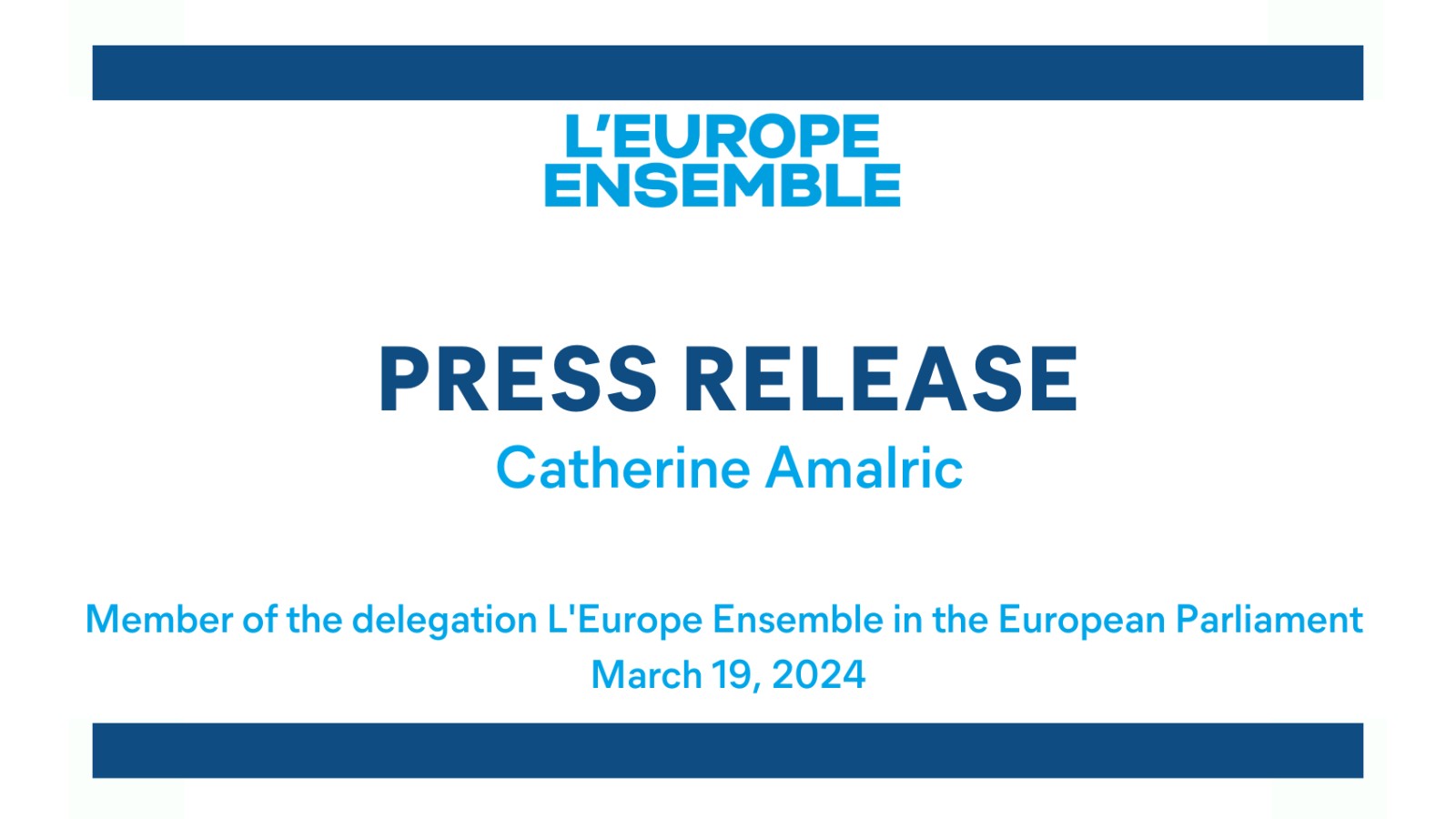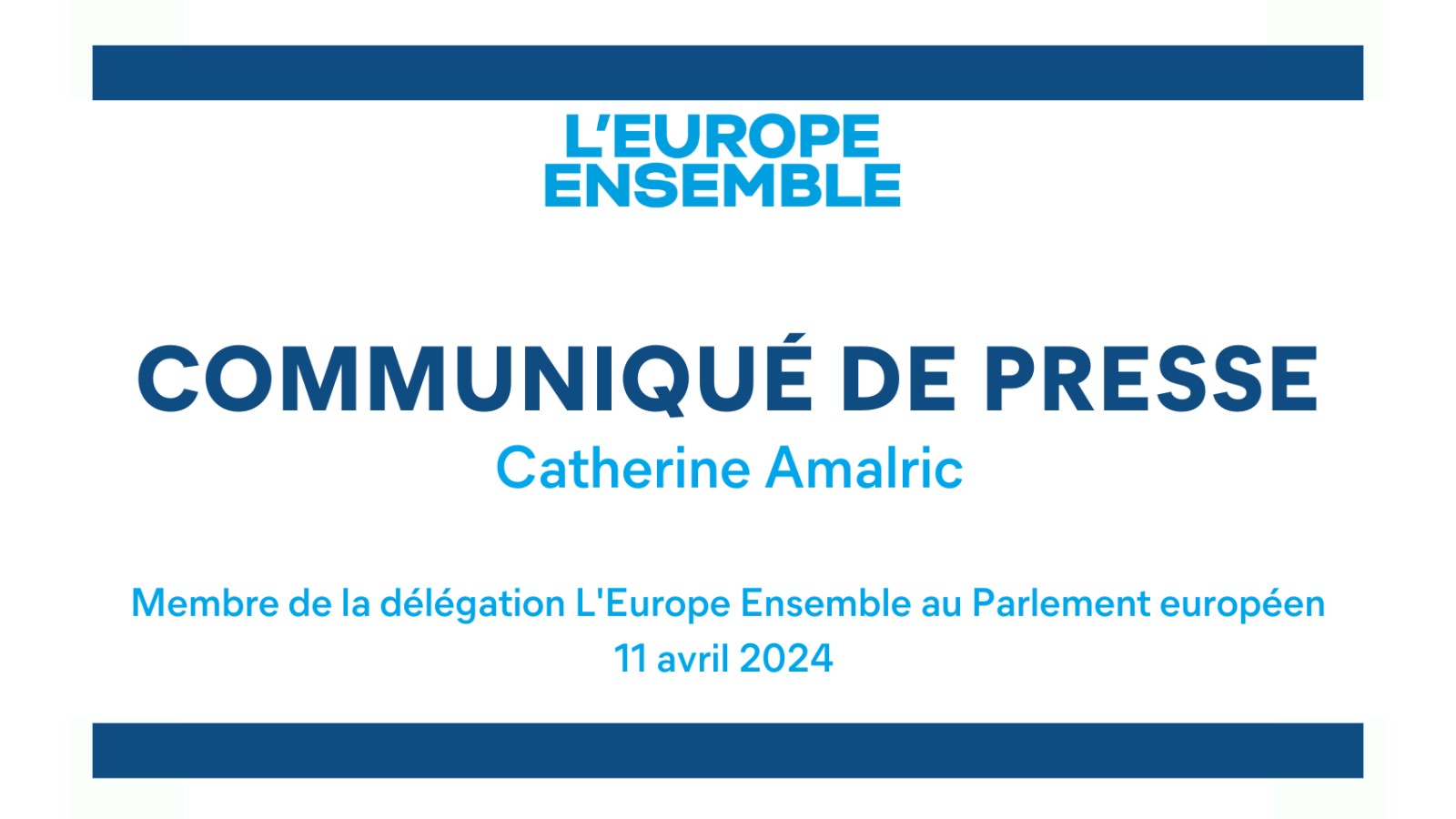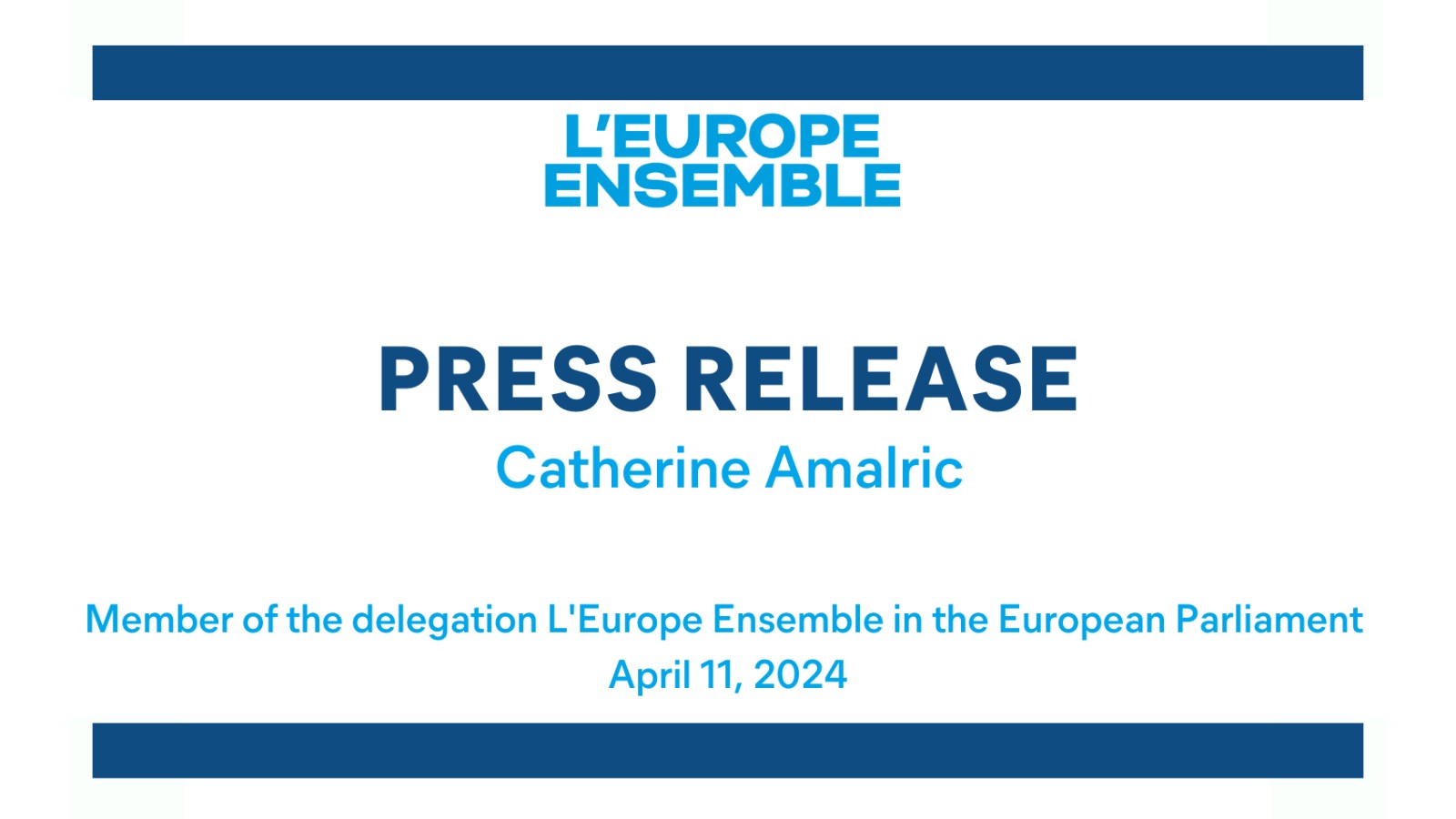On Tuesday 19 March, MEPs of the Environment, public Health and food safety committee (ENVI) adopted by a large majority the two reports that are part of the revision of the European pharmaceutical legislation. The pharmaceutical package, including a directive and a regulation, was presented by the European Commission last April, more than 20 years after it was last revised.
After months of negotiations, the two teams of rapporteurs have managed to reach agreement on ambitious texts, while medicines shortages are on the increase and almost 80% of active ingredients are produced in third countries, such as India and China.
Catherine Amalric, rapporteur for the Renew Europe Group on the directive on medicinal products, fought during the negotiations to include key priorities for her political group, such as:
- strengthening the European pharmaceutical ecosystem through the essential relocation of the pharmaceutical industry in Europe, by introducing new incentives, promoting hospital exemption for the production of advanced therapy medical products and authorising the exchange of advanced therapy medicinal products produced in a hospital pharmacy in border regions;
- guaranteeing fairer access to medicines, in particular by extending group purchasing of medicines for the treatment of rare and chronic diseases or antibiotics, and by facilitating voluntary cooperation between Member States on the pricing of medicines;
- the protection of sexual and reproductive health rights, by removing the possibility of banning or restricting contraceptive and abortive medicines in Europe;
- consolidating a more sustainable Europe, by moving gradually towards the introduction of an electronic package leaflet to replace the paper version, without creating or reinforcing digital inequalities, but also by introducing single dose packaging for medicines, to better tackle antimicrobial resistance and avoid surplus waste.
Regarding the regulatory data protection, the majority of the political groups agreed to set this protection period at 7.5 years (compared to 8 years today) after many hours of negotiations.
Additional regulatory data protection may be granted if the medicinal product meets an unmet medical need (12 months) or if it contains a new active substance and has been developed by means of comparative clinical trials (6 months) or if it has been developed in the EU in collaboration with public entities such as university hospital institutes, centres of excellence or bioclusters (6 months).
Press contact: claudie.gilot@europarl.europa.eu




